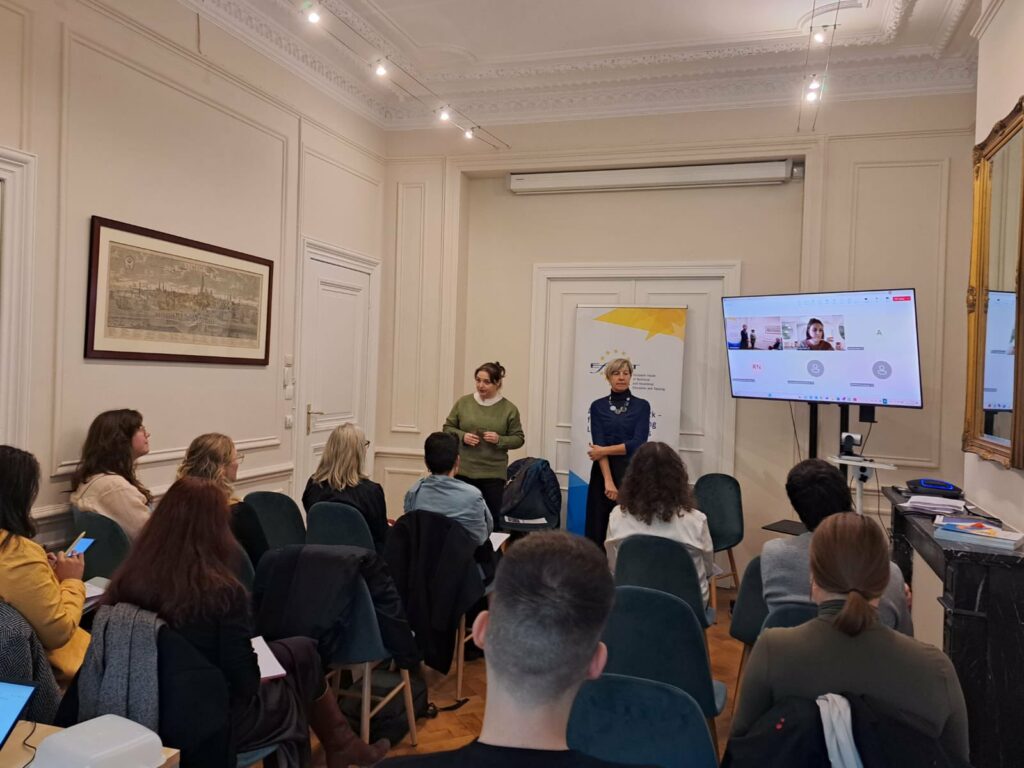Driving Well-being Through Gender Equality: Insights from Lifelong Learning Leaders
07/11/2024

The Gender Equality Task Force for Equality in Lifelong Learning hosted an engaging session, “Gender Equality as a Driver of Well-being in Educational Spaces” on 06 November 2024. Moderated by Sylvia Liuti, a leading expert in gender equality in education and chair of the Task Force, the event welcomed participants both in Brussels and online, providing an opportunity to explore how gender equality contributes to well-being in educational and workplace settings.
Sylvia Liuti opened the session, emphasizing the importance of the awareness of the concept of gender mainstreaming in workplaces. Liuti explained that gender equality involves creating policies that consider the diverse experiences of both men and women. A key example she highlighted is the need for work-life balance policies. Without gender-conscious approaches, inequalities are reinforced rather than mitigated, limiting the impact of various initiatives in education and beyond.
Chiara Antonelli presented the menABLE project, led by the European Schoolnet. The project aims to combat online gender-based violence (GBV) by raising awareness and training young people and educators. Antonelli shared that the menABLE toolbox and MOOC offer practical resources to address GBV in schools, a vital step to engage youth in creating safer online spaces.
Rose Heffernan of Women Engage for a Common Future (WECF) introduced the concept of feminist moderation, drawing from the REAL DEAL project on citizen participation. Heffernan described feminist moderation as a technique to foster inclusive spaces where all voices are valued. She emphasized techniques to counter power imbalances, such as de-escalation strategies and bridging conversations to prevent echo chambers. She invited participants to enrol on the online course “ Feminist moderation: How to facilitate safe and inclusive discussions.”
Alessia Sebillo from Diesis discussed how social economy enterprises can improve gender safety at work. By involving small and medium enterprises (SMEs) in initiatives to combat harassment, Diesis created resources specifically designed for organizations that lack extensive HR departments through different EU Projects. Sebillo shared that the program includes a training platform, charters of engagement, and peer-led campaigns to promote safety and awareness across various European regions.
Paula Mejía González from the European Trade Union Institute for Research (ETUI) presented a self-monitoring tool developed for trade unions. This tool helps organizations reflect on their gender equality practices, providing assessments in areas like organizational structure, training programs, and inclusive competences. González noted that this tool encourages unions to integrate gender equality directly into their operational values.
The event underscored the critical role of gender equality in creating healthier, more inclusive educational environments and provided actionable insights across various sectors.
Resources:
- Chiara Antonelli (European Schoolnet): The menABLE project in practice: How to create a safe environment to discuss GBV
- Paula Mejía González (ETUI – European Trade Union Institut for Research): Gender Equality in Trade Union Education: A tool to assess Workplaces
More presentations to be shared soon.




